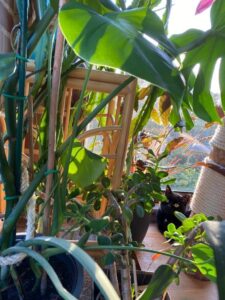In this instalment of meet the members we get to know Soraia, our astute Support and Documentation Specialist who loves to read books, play boardgames and bring people together.
Meet the Members: Soraia
Tell us about yourself?
Hello, my name is Soraia and I’m currently working as a Support and Documentation Specialist at Labforward. In my free time I am known as a bookworm and that above all else, I love to cuddle my cat. I am particularly interested in books on topics such as agile thinking, product management, sociology, psychology, company culture and politics. My favourite book at the moment is The Project Phoenix, which is about how “DevOps” culture is gaining more importance in the IT world and is becoming a crucial component for organizations to consider (if you want to know more about it, I recently wrote a review which you can access here).
Like many of my colleagues, I have a science background, having studied biochemistry for my master’s degree. Whilst I was at university I partook in voluntary work and helped to set up a society myself. I’ve continued my hobby of bringing people together at Labforward where I recently created an internal debating club where we can discuss various interesting ideas and topics. I think this is important as it not only encourages people to voice their opinion, it also gets people to be respectful and listen to other opinions – even if it’s something as controversial as putting pineapple on pizza!


Fun fact
As I mentioned before I am always keen to set up groups and societies where like-minded people can bond. During my university days I founded with others a group called Griffin Gaming and created a little community for people who liked esport gaming. Soon it became very popular and brought a range of people with the same interests together.
Wildcard Question
If you could interview a famous person who would you interview and why?
I would love to interview Waris Dirie. When I was younger my brother gave me a book called “Desert Flower: The Extraordinary Life of a Desert Nomad”. The true story of Waris Dirie was incredibly sad, but also inspiring. After experiencing tremendous hardships, she was able to overcome them and put lot’s of work into helping others who have had similar experiences to her.
Why did you join Labforward?
Working at Labforward allows me to combine my biochemical background with my passion for IT on a daily basis. I find it extremely rewarding to be able to help our customers make the most of our products. As I know firsthand some of the frustrations of working in the laboratory, it makes me happy to know that I’m making some people’s work in the lab easier. Also I especially like the company’s inclusive and open environment, we are quite a diverse team and the people are really friendly.
What is your main role?
What is your main role?
I work as a Support and Documentation Specialist for all our Labforward products so I’m the first person to reach out for general product related questions and if technical problems arise. This role is something which I think is suited to me as I enjoy solving problems.
I like to help customers use efficient products and help them figure out problems. Particularly interesting is the fact, to get to the bottom of the user’s use case to help improve our products. Furthermore, it is exciting to support three different products, helping in the process to bring them together.
What excites you about your job?
What excites you about your job?
One of the things that really excites me about my role is the day to day interaction with different stakeholders. I enjoy communicating with everyone involved in order to find the best solutions to any problems the customers may face.
Again, having a background in science is essential in the line of work I do. As in other areas as well, scientists tend to use their own terms and definitions, so having a good understanding of how laboratories and research teams work is not only a big bonus, but also essential. I know the various scientific processes and experiments, so am able to speak in our customer’s language.

Comments are closed.